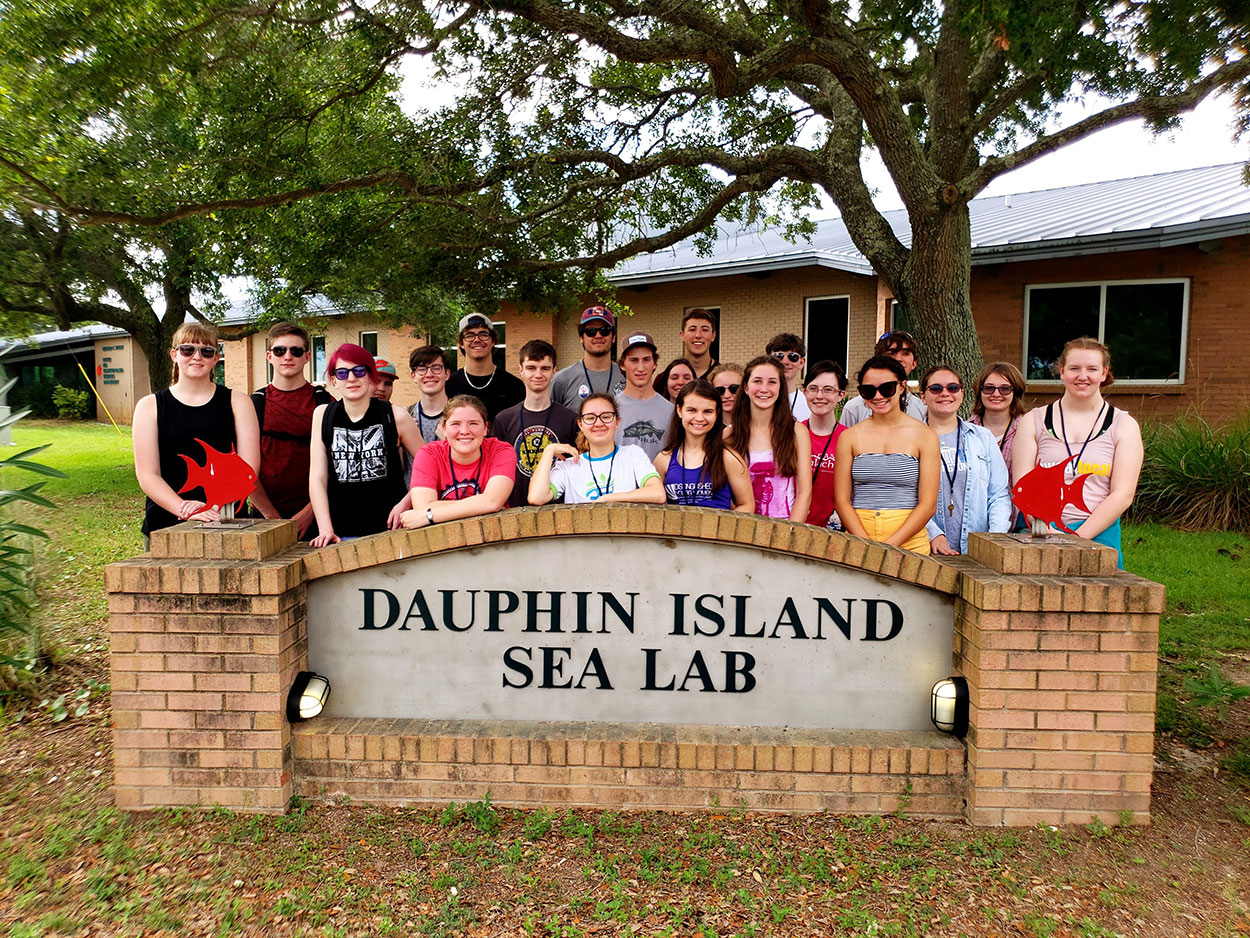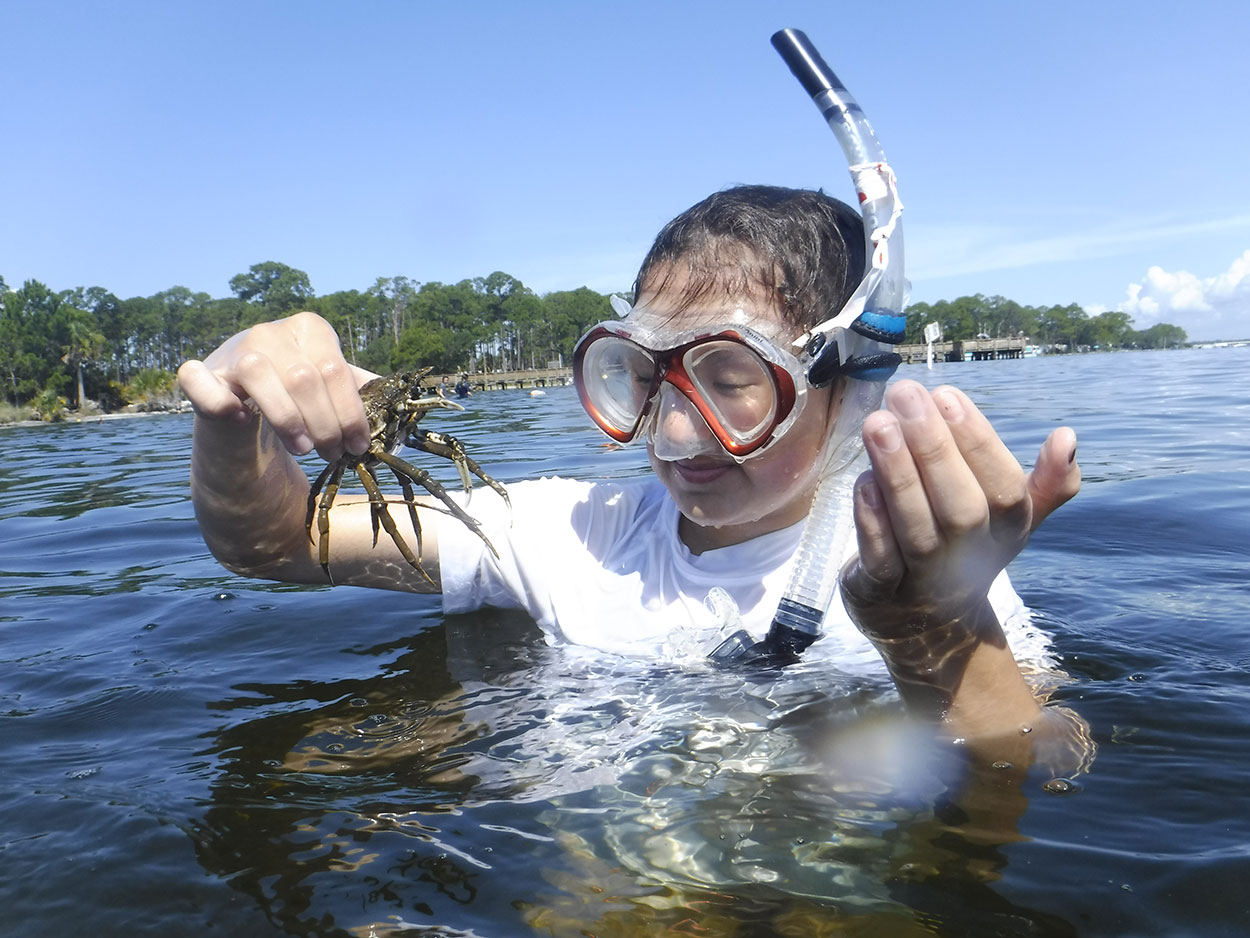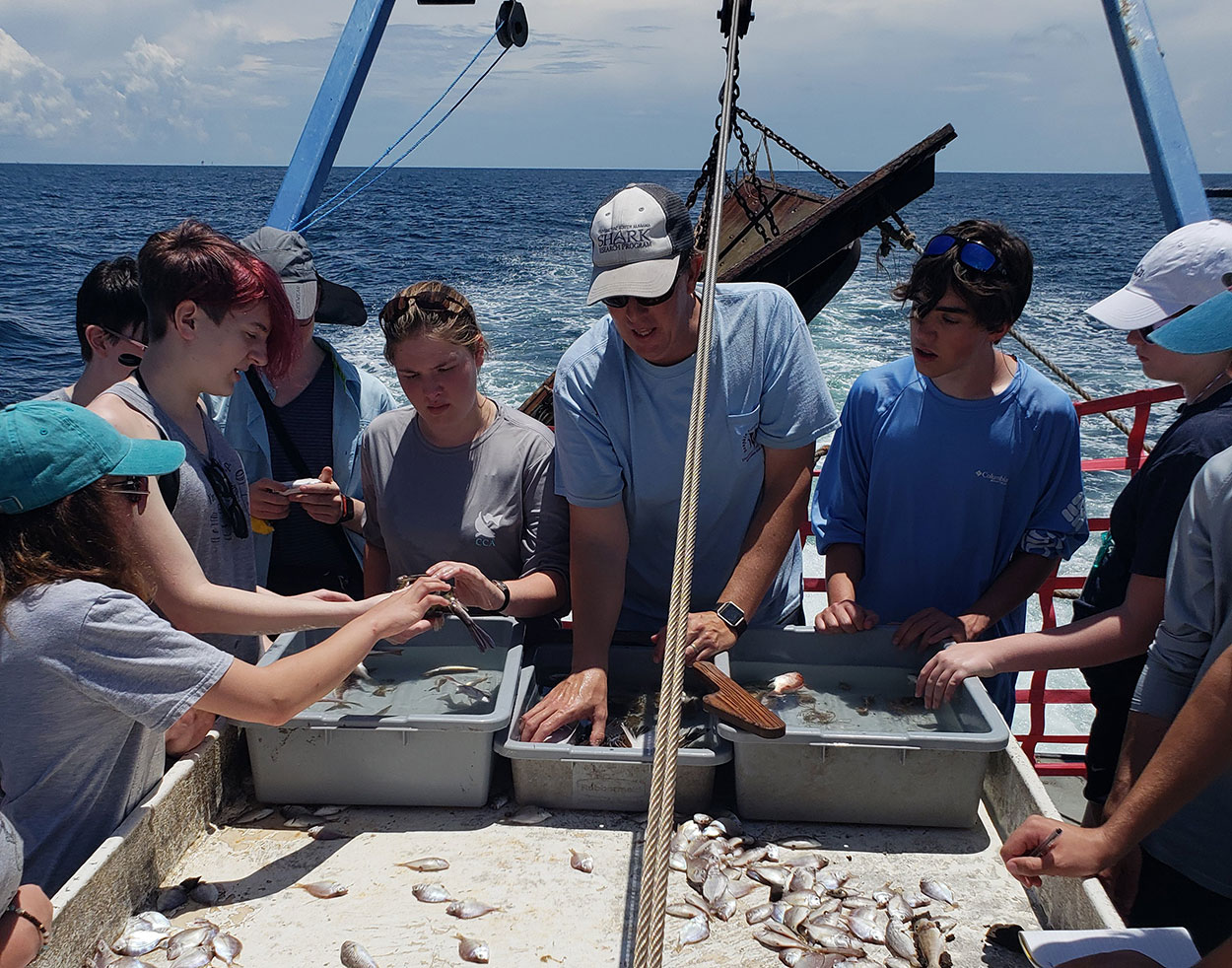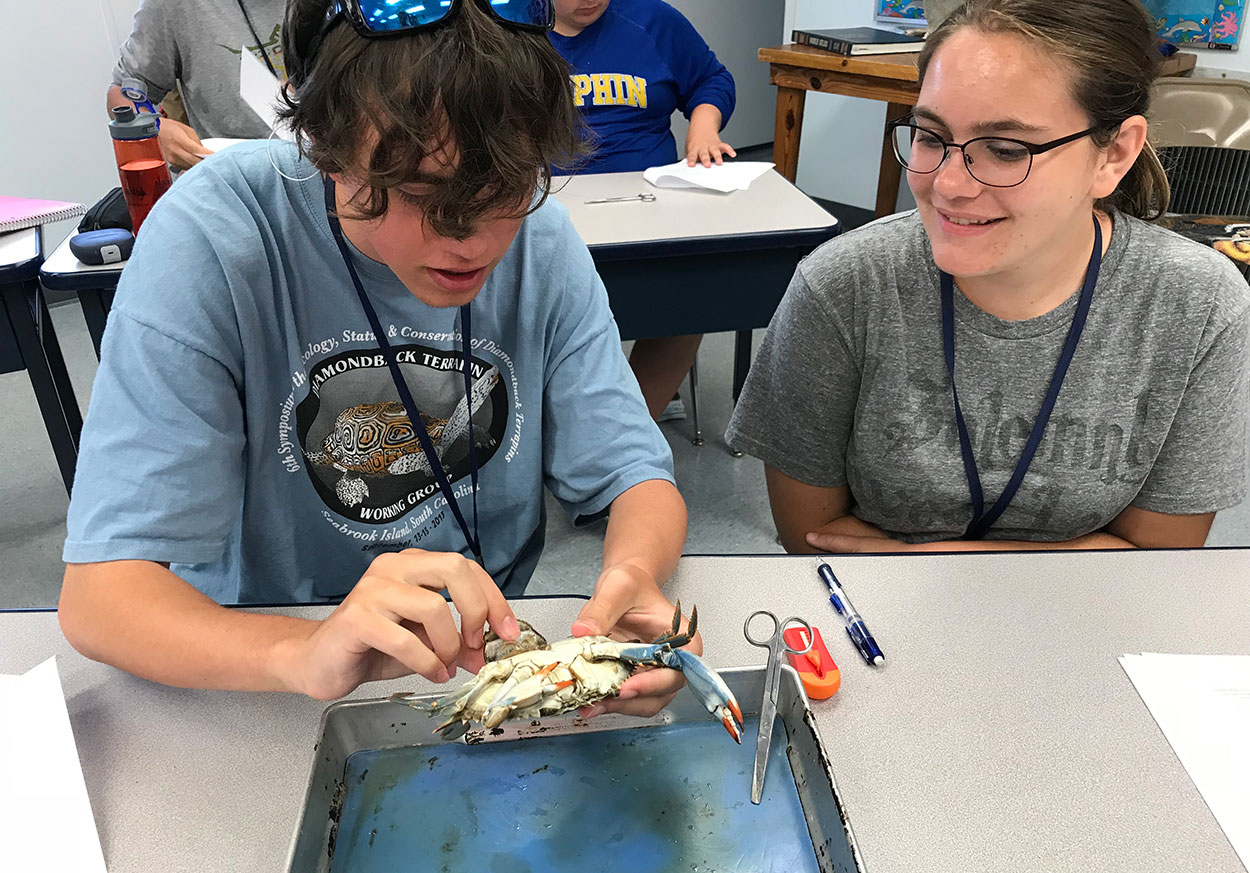
The summer Marine Science Course for high school students at the Dauphin Island Sea Lab opens doors to the world of marine science. This month-long residential class provides a hands-on introduction to the field of study for current high school students or recent graduates.
Students participate in more than 150 hours of field and classroom activities with much of that spent in the marine ecosystems in and around Dauphin Island. From many trips aboard DISL’s floating classroom, the R/V Alabama Discovery, getting muddy in the salt marsh, a trip to snorkel in seagrass ecosystems at Florida’s St. Andrews State Park, a marine science career night with government, industry, and private panelists, building underwater robots, behind the scenes looks at the Dauphin Island Sea Lab’s aquarium and the Aquarium of the Americas in New Orleans, and much time on Dauphin Island’s beaches, there’s a great deal to explore and discover.

“You’re not just in the classroom. There’s a diversity in what you can see,” Taylor Bailes, 2018 program participant, said. “It’s a great opportunity to form connections, gain advice, and learn what you need to do,” Taylor said.
As part of the class, students conduct an independent research project under the guidance of Discovery Hall or Dauphin Island Sea Lab research faculty. Using the varied and specialized resources of DISL, students gain insight into how scientific research is done and whether that is an avenue they want to pursue.

“This course really broadened my spectrum of networking - meeting different people, learning about how they got into the field, and hands-on experience of what being a scientist looks like,” Elias Gianopoulos, who participated in 2018, shared. “This is raw. This is what it looks like."
For students like Gianopoulos, the intense four-week course is a jumping off point as they make their plans for college.

Dr. Tina Miller-Way, Chair of Discovery Hall Programs at DISL said, “Our goal is not to make every student a marine scientist or even a scientist, but to create opportunities for students to increase their understanding of the importance of the ocean in all of our lives. The almost 40-year history of this class has shown that most students are more directed and focused in their studies after the class, make lifelong friends, and consider it one of the most memorable experiences they have had.”
The course is approved by the Alabama State Department of Education, allowing students to earn high school science credit for the course. Through a recent agreement with the University of West Alabama, students may also earn college credit for the course.
Applications for the program can be submitted starting January 3, 2019. To learn more about the program, click here.